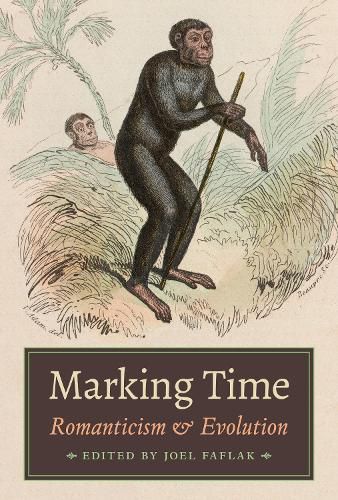Readings Newsletter
Become a Readings Member to make your shopping experience even easier.
Sign in or sign up for free!
You’re not far away from qualifying for FREE standard shipping within Australia
You’ve qualified for FREE standard shipping within Australia
The cart is loading…






Scholars have long studied the impact of Charles Darwin’s writings on nineteenth-century culture. However, few have ventured to examine the precursors to the ideas of Darwin and others in the Romantic period.
Marking Time, edited by Joel Faflak, analyses prevailing notions of evolution by tracing its origins to the literary, scientific, and philosophical discourses of the long nineteenth century. The volume’s contributors revisit key developments in the history of evolution prior to The Origin of Species and explore British and European Romanticism’s negotiation between the classic idea of a great immutable chain of being and modern notions of historical change. Marking Time reveals how Romantic and post-Romantic configurations of historical, socio-cultural, scientific, and philosophical transformation continue to exert a profound influence on critical and cultural thought.
$9.00 standard shipping within Australia
FREE standard shipping within Australia for orders over $100.00
Express & International shipping calculated at checkout
Scholars have long studied the impact of Charles Darwin’s writings on nineteenth-century culture. However, few have ventured to examine the precursors to the ideas of Darwin and others in the Romantic period.
Marking Time, edited by Joel Faflak, analyses prevailing notions of evolution by tracing its origins to the literary, scientific, and philosophical discourses of the long nineteenth century. The volume’s contributors revisit key developments in the history of evolution prior to The Origin of Species and explore British and European Romanticism’s negotiation between the classic idea of a great immutable chain of being and modern notions of historical change. Marking Time reveals how Romantic and post-Romantic configurations of historical, socio-cultural, scientific, and philosophical transformation continue to exert a profound influence on critical and cultural thought.